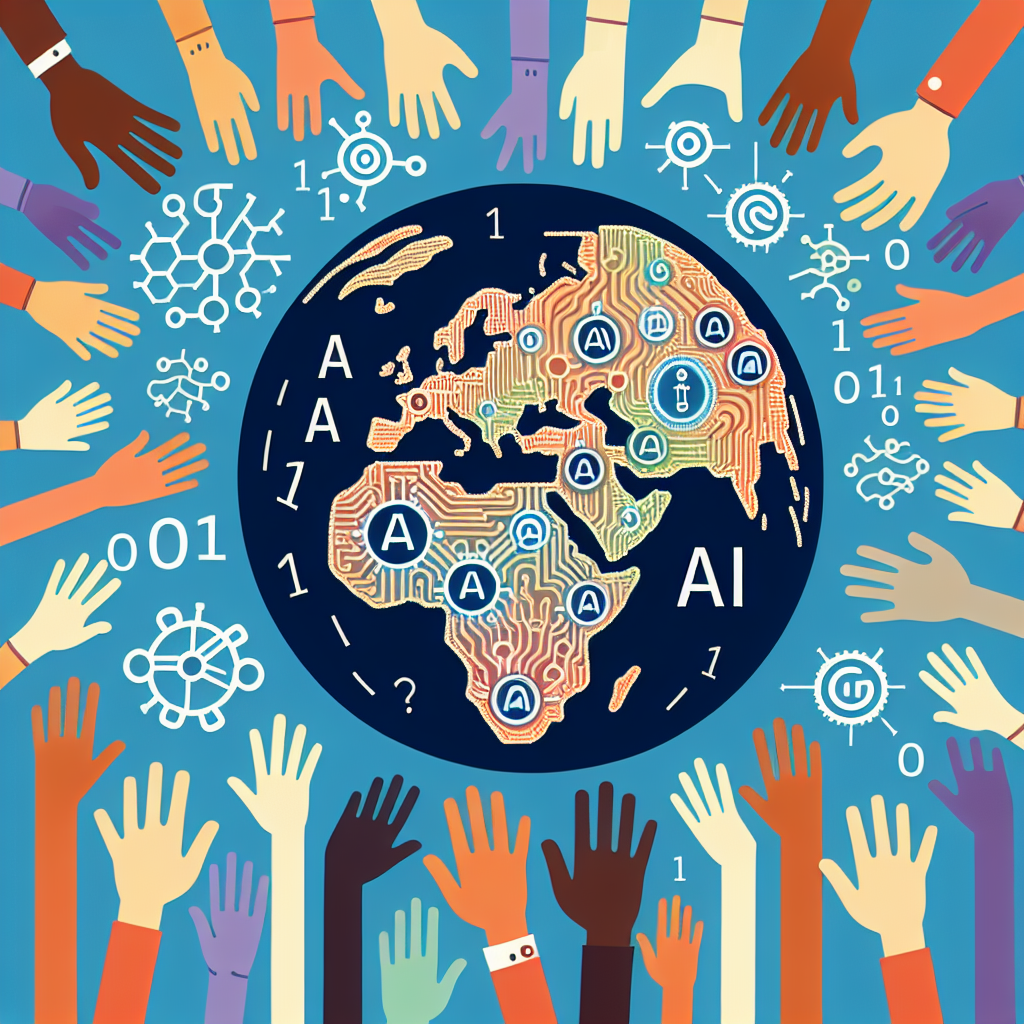As artificial intelligence (AI) continues to advance at a rapid pace, there is a growing movement towards democratizing AI to ensure that all individuals and communities have equal access to its benefits. Democratizing AI means making AI technology more accessible, affordable, and inclusive for everyone, regardless of their background or resources. This global movement towards equality aims to address the potential disparities and inequalities that could arise from the widespread adoption of AI technology.
The democratization of AI is crucial for several reasons. First and foremost, AI has the potential to revolutionize industries, improve efficiency, and enhance decision-making processes. However, if AI is not accessible to everyone, it could exacerbate existing inequalities and create new barriers for marginalized communities. By democratizing AI, we can ensure that everyone has the opportunity to benefit from this powerful technology.
One of the key aspects of democratizing AI is increasing access to AI tools and resources. This includes making AI software and platforms more affordable and user-friendly, so that individuals and organizations of all sizes can leverage AI technology. Additionally, efforts are being made to provide training and education in AI to ensure that people from diverse backgrounds have the skills and knowledge to work with AI.
Furthermore, democratizing AI also involves promoting diversity and inclusion in the AI industry itself. This means ensuring that there is representation from different communities and perspectives in AI research, development, and decision-making processes. By fostering diversity and inclusion in the AI industry, we can ensure that AI technology is developed in a way that benefits everyone.
There are several initiatives and organizations that are leading the charge in democratizing AI. For example, AI4ALL is a nonprofit organization that aims to increase diversity and inclusion in AI by providing education and mentorship to underrepresented groups. Another organization, DataKind, works to harness the power of data science and AI for social good by partnering with nonprofits and social organizations.
In addition to these initiatives, governments and policymakers are also playing a crucial role in democratizing AI. For example, the European Union has developed guidelines for ethical AI, which aim to ensure that AI technology is developed and used in a way that respects fundamental rights and values. Similarly, the US government has established the National Artificial Intelligence Research Resource Task Force to promote AI research and innovation in a way that benefits society as a whole.
Overall, democratizing AI is a global movement towards equality that aims to ensure that everyone has equal access to the benefits of AI technology. By increasing access to AI tools and resources, promoting diversity and inclusion in the AI industry, and working with governments and policymakers to develop ethical guidelines, we can create a more inclusive and equitable future for AI.
FAQs:
Q: What are some potential challenges in democratizing AI?
A: One potential challenge in democratizing AI is the digital divide, which refers to the gap between those who have access to technology and those who do not. In order to democratize AI, efforts must be made to ensure that everyone has access to the necessary tools and resources to work with AI.
Q: How can individuals get involved in the democratization of AI?
A: There are several ways that individuals can get involved in the democratization of AI. This includes participating in AI education and training programs, advocating for diversity and inclusion in the AI industry, and supporting organizations that are working towards democratizing AI.
Q: What are the benefits of democratizing AI?
A: By democratizing AI, we can ensure that everyone has equal access to the benefits of AI technology. This can lead to increased innovation, efficiency, and inclusivity in various industries, as well as promote diversity and inclusion in the AI industry itself.
Q: How can governments and policymakers support the democratization of AI?
A: Governments and policymakers can support the democratization of AI by developing policies and regulations that promote access to AI technology, encourage diversity and inclusion in the AI industry, and ensure that AI technology is developed and used in an ethical and responsible manner.
In conclusion, democratizing AI is a global movement towards equality that aims to ensure that everyone has equal access to the benefits of AI technology. By increasing access to AI tools and resources, promoting diversity and inclusion in the AI industry, and working with governments and policymakers to develop ethical guidelines, we can create a more inclusive and equitable future for AI.

